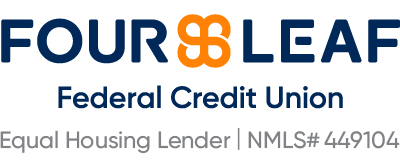How to Buy a House: 15 Steps in the Homebuying Process
The steps to buying a home include getting your finances ready and finding the right mortgage lender, but there's fun stuff, too.

Some or all of the mortgage lenders featured on our site are advertising partners of NerdWallet, but this does not influence our evaluations, lender star ratings or the order in which lenders are listed on the page. Our opinions are our own. Here is a list of our partners.
Steps
We’ve broken down the homebuying process into 15 main steps: Call it a buying-a-house checklist. Each step includes choices to make and things to do. Some are stressful, some are pretty cool and some are, well, kinda annoying. But each gets you one step closer to your goal of homeownership.
1. Make sure you're ready
Sure, there's being financially ready to buy a house (see Step 2 for that). But are you emotionally ready? Even if it's just going to be your starter home, you're making a big financial commitment and putting down some roots.
You'll want to think about your other goals for the next few years. Are you buying with a partner, and, if yes, are you on the same page when it comes to money? Is there any chance you'd need to relocate for work? Are you thinking of starting a family? These big-picture questions can add to the pros (or cons) of whether this is the right time to buy a house.
2. Get your finances in order
Buying a house may be the biggest financial decision you'll ever make, so before you take the plunge, you want to be sure your finances are solid.
Using a home affordability calculator can help you determine your budget by taking into account your income, debts, location and down payment amount (more on down payments in a moment). You'll be able to see how your monthly mortgage payments might add up and how your finances could look as a homeowner.
This can be important for keeping your ambitions down to earth. You might be able to qualify for a sizable mortgage, but that doesn't mean you actually want to commit that much of your budget to housing.
Check your credit score, too. A higher credit score is the single most powerful way to earn a lower mortgage interest rate. Know the mortgage options for your credit score. If your credit score could use some work, it may be worthwhile to hold off on homeownership and see what you can do to build up your score.
3. Make a plan for the down payment
When you've determined what you can afford, you can figure out how much you want to save for a down payment. You don’t need to put down 20% to buy a house; many homeowners opt to put down less. A smaller down payment requires less money upfront, but it means you'll have to pay mortgage insurance, which typically increases your monthly payment. The type of home loan you use also helps to determine the minimum down payment required.
If this is your first home or if you haven't owned a house in a while, you may also want to look into state first-time home buyer programs. Many offer financial help, including down payment assistance. And if you have a friend or family member who can afford it, you may also use gift money to increase your down payment. Rules about gift money vary by loan program.
You'll want to set aside money for more than just the down payment. Closing costs generally run from 2% to 5% of the total cost of the loan. It's also a good idea to have some emergency funds in case the home needs unexpected repairs.
» MORE: Use our mortgage calculator to estimate your payments
Mortgage loans from our partners

on New American Funding
on New American Funding

on GO Mortgage
GO Mortgage
4.0
NerdWallet rating
4.0
NerdWallet ratingon GO Mortgage
Mortgage loans from our partners

on New American Funding
on New American Funding

on GO Mortgage
GO Mortgage
4.0
NerdWallet rating
4.0
NerdWallet ratingon GO Mortgage
4. Create a wish list
See, told you there'd be some fun steps! And coming up with a list of must-haves and nice-to-haves for your house is definitely one of them. Whether you’re looking for a starter home or somewhere you can imagine living for years to come, there are lots of little details, but here are some of the bigger decisions you might make when drawing up your list:
Detached house or attached unit? If you're all about having a backyard, a traditional single-family home is for you. But if you're in a more heavily populated area or you don't want to deal with all that maintenance, buying a condo or townhouse might be your best bet. In some cities, co-ops are also an option. They can be less expensive than a condo but a bit harder to finance.
» MORE: Pros and cons of buying a condo vs. a house
What's your ideal location? Assuming you're staying in state and know the general area where you want to live, now it's time to choose a neighborhood. Think about factors such as safety, amenities (like walkability, green spaces or coffee shops) and costs, which can include property taxes and, if it's part of a homeowners association, HOA fees. It's also smart to consider the school district. Even if you don't plan to have children, school quality can affect the home's value — and help or hurt your resale price if and when you choose to sell.
Move-in ready or fixer-upper? It doesn't get easier than purchasing a house where all you need to do is move in. But if you're in a pricey or otherwise competitive market, taking on a property that needs TLC may help you afford a larger house or get into a costlier neighborhood. With a fixer-upper, you will need to put in the work — and the cash — to make it livable, so make sure you're up to the challenge.

5. Find the right mortgage for you
The type of mortgage you use to buy a house affects what you'll need to qualify for the loan, including the required down payment amount, and how you'll pay it back. Choosing the right home loan can boost your chances of approval and may save you thousands in the long run.
Before you decide which type of mortgage to pursue, it’s important to learn the advantages and drawbacks of each one. Here are some of the main types of mortgages:
Conventional loans are mortgages not guaranteed by the federal government. They offer low minimum down payments but have more stringent qualifications.
FHA loans are mortgages backed by the Federal Housing Administration. These are generally easier to qualify for than conventional loans but have stricter requirements for mortgage insurance.
VA loans from the Department of Veterans Affairs are for active or former service members and eligible spouses. VA purchase loans allow you to make no down payment.
Jumbo loans are mortgages for houses that are more expensive than standard lending limits. These usually require larger down payments and higher credit scores.
Renovation loans let you wrap the costs of home improvements into the total amount of the home loan. Especially when mortgage rates are low, this can be a way to borrow more money for repairs while paying less interest than you would with another type of home improvement loan, like a personal loan.
» MORE: Learn how to choose the best mortgage
With each of these loan types, you may have the opportunity to choose between a fixed-rate or an adjustable-rate mortgage, also called an ARM. As you probably guessed from the names, fixed rates are static; adjustable rates can move up or down. An ARM loan can start at a lower interest rate than a fixed-rate loan, enabling you to buy more home for the same monthly payment, but rates can increase — or decrease — over time.
You'll also need to choose the mortgage term. Thirty-year mortgages are the most common, but 10-, 15- or 20-year terms may be available at lower interest rates.

6. Get preapproved for a mortgage
You know your homebuying budget, and you've decided what type of home loan will work for you. Now it's time to start shopping for a mortgage lender. There are lots of lenders out there, including big brick-and-mortar banks with familiar names, online-only nonbank lenders and smaller, local banks and credit unions that may offer more personalized service.
When you look at lenders, determining that they offer the type of loan you want is the first step. (If you've decided on an FHA loan and they aren't an FHA-approved lender, move on to the next one.) But beyond that basic hurdle, you'll want to look at how their sample rates compare with today's mortgage rates, find out what closing costs you’ll be responsible for and compare mortgage origination fees. You'll likely find some of this info right on their websites; to get some numbers, you'll have to speak with a loan officer.
Working with a lender to get preapproved for a mortgage is an important step in accurately determining your budget. A mortgage preapproval will give you real numbers, since the lender will have detailed info about your finances. That includes a hard inquiry, which will show up on your credit report. The good news: If you apply with multiple lenders around the same time, it'll only count as one hard pull — and shopping around may help you find a lower rate.
Pulling together all the documents for a preapproval can be time-consuming. But once you have the documents for one lender, it's easier to apply with others, and what you'll get will be worth it. Along with the preapproval letter stating how much the lender is willing to lend you, you can also get a Loan Estimate form. This form isn't final, but it lets you easily compare lenders' rates, fees and other costs since they all use the same form. A preapproval letter is typically valid for up to 90 days, after which it will need to be updated.
A preapproval letter also shows sellers and real estate agents that you're a serious buyer who can get financing, which can give you a crucial edge over competing home shoppers. You may also have heard of pre-qualification, which traditionally gives you a rough estimate of what the lender might let you borrow based on self-reported data. The terms are sometimes used interchangeably, but a preapproval letter carries more weight, though neither preapproval nor pre-qualification is a guarantee that you'll close the loan.
7. Find a real estate agent
You've got your preapproval in hand and know what kind of house you're looking for, so let's find someone to help you look. The right real estate agent can make a huge difference throughout the process of buying a house, from knowing the ins and outs of the local market to providing moral support when the search feels endless to helping you negotiate with a seller.
It's a good idea to interview at least three agents. Ask people you know who've recently bought a home whether they'd recommend their agent. However, avoid using the real estate agent who's selling the home you're hoping to buy. You want your own agent who will advocate and negotiate on your behalf.
The buyer's agent is generally paid a commission by the seller, but there are different ways to structure and negotiate compensation. Read the agreement carefully to verify who'll pay in your case.
8. Go shopping!
Yes, this step merits an exclamation point. It's time to take scrolling through online real estate listings to the next level and actually see some homes in person. Make the most of your walk-through, since you might only see a home once in person before you make an offer, especially in a hot market. Try not to be thrown off by other home shoppers or by the seller's agent, who may or may not be in attendance.
Take photos with your phone to help jog your memory when you're deciding whether to make an offer. It might be easy to recall that charming breakfast nook or the extra bedroom that would make a perfect home office, but the aging appliances or decking that needs replacement could be out of sight, out of mind. Potential issues can affect the amount you offer or be things to bring up with a home inspector.
9. Make an offer
Found a home that's right for you? Now's the time to make an offer. Your real estate agent can be a tremendous resource here, providing you with comparable sales information and any intel about the sellers they might have gleaned from the sellers' agent, like if they've already found a new place and are extra motivated to sell. You may also want help from a real estate attorney. In some states, a lawyer is required to be part of any real estate transaction.
If the seller rejects your offer, you might make a counteroffer or walk away; it depends on why they turned you down. If the seller counters, talk it out with your agent to decide whether to accept or make your own counteroffer. It's during these negotiations that a buyer's agent really earns their keep.
Offer accepted? Congrats! Now you've got just a few more steps to go. You'll also likely write your first check at this point. Earnest money is a deposit you'll make toward the purchase of the house. It usually goes into an escrow account, and when the sale goes through, most buyers use it as part of their cash to close.
10. Get a mortgage
You know the property you want to buy and how much you'll have to pay for it. Now you'll choose a lender to get a mortgage from. You can go with a lender that preapproved you, or start fresh with a different one. Even with an online-first lender, you'll often work closely with a loan officer to complete the actual application.
This is a paperwork-heavy process, so get ready to do a lot of uploading. Here's what you're likely to need:
W-2 forms from the past two years (possibly more, if you've changed employers).
Pay stubs from the past 30 to 60 days.
Proof of other sources of income, including documentation of any gift money.
Federal income tax returns from the past two years.
Recent bank statements, usually for the past couple of months.
Details on long-term debts like car or student loans.
ID and Social Security number.
Once your mortgage application is complete, you'll go into underwriting. During this process, the lender makes a final decision on whether to give you the loan; it's basically making sure there's not anything about the deal that's too risky.
Underwriting includes digging deep into your finances, so you may need to come up with even more documents. The lender will also look at the home you've chosen via an appraisal (see Step 13 below) and request a title search.
11. Get homeowners insurance
It might feel a little strange to take out an insurance policy on a home you don't actually own yet, but most lenders make securing homeowners insurance a condition of giving you a mortgage. You'll want enough coverage to fully replace the home, which might not be the same as your purchase price or the appraised value, and typically the policy should become effective on your closing date.
12. Schedule a home inspection
A basic home inspection can raise issues you might face down the road and point out any necessary repairs. This visual assessment covers all aspects of the house and its systems, from the foundation to the roof. If you have a particular concern, like mold or radon, you may want to get one of the more specialized types of home inspections in addition to a standard inspection. And if the home has features such as a pool, septic system or retaining walls, you may want to have these inspected as well.
You should choose the home inspector and pay for the home inspection. If it uncovers problems that weren't included in the seller's disclosures, you may be able to negotiate with the seller (see Step 14).
13. Have the home appraised
The home appraisal is separate from the home inspection. While the home inspection is for your peace of mind, the appraisal is really for the lender, which doesn’t want to lend you more money than the home is actually worth. An appraisal looks closely at the home you're buying and at comparable recently sold homes to determine the market value of the property.
Your lender will choose the appraiser, but you'll pay for the appraisal. Even if you're buying a house with cash, you may want to consider hiring an appraiser yourself to be sure about your investment.
14. Negotiate any repairs or credits with the seller
Though some items, like prorating property taxes or HOA fees, will have been addressed in your offer letter, you may have some items to negotiate before closing.
Your ability to negotiate can hinge on what kind of market you're facing. In a strong seller's market, it can be difficult to get concessions, since the seller can simply go to their next offer. But if it's an issue that will come up with any buyer — for example, a necessary repair that will get flagged by any home inspector — you may have leverage. And in a buyer's market, almost any aspect of the transaction can be negotiated, including having the seller pay some of your closing costs or loan points.
Asking for a credit at closing rather than for the seller to complete needed repairs can help keep the transaction moving. The seller simply rebates you an agreed-upon amount for specific improvements. That can save you a bit of cash at closing, plus handling the repairs yourself (whether DIY or with a pro) ensures the work will be done to your satisfaction.
» MORE: Ways to lower your closing costs
15. Close on your new home
You've finally made it to the last step! Getting familiar with the standard closing documents ahead of time can make the closing process less nerve-wracking.
Your lender must provide you with the closing disclosure at least three days before the actual closing. You can compare it with your Loan Estimate to see whether and how any closing costs have changed. This will let you know how much total cash you’ll need to close.
On or near closing day, you'll do a final walk-through with your real estate agent. You'll probably be buzzing with excitement, but make sure to check that everything’s as agreed upon — for example, that all the appliances that are supposed to be included in the sale are still there.
It's been a whirlwind of emotion and seemingly endless paperwork, not to mention that you may have just written the biggest check of your life, but now you're getting the keys to your new home. Congratulations, you did it!
» MORE FOR CANADIAN READERS: Steps to take before buying a house













